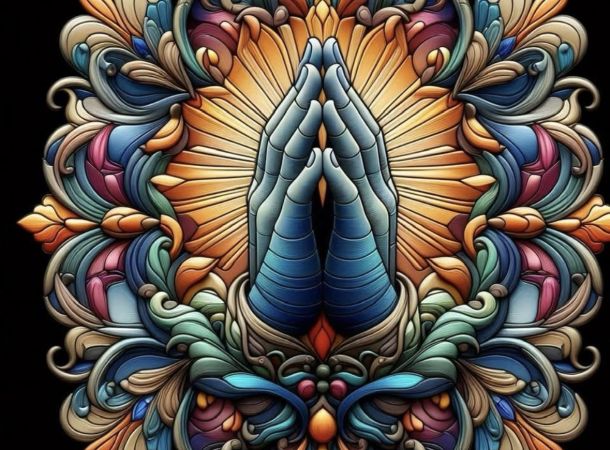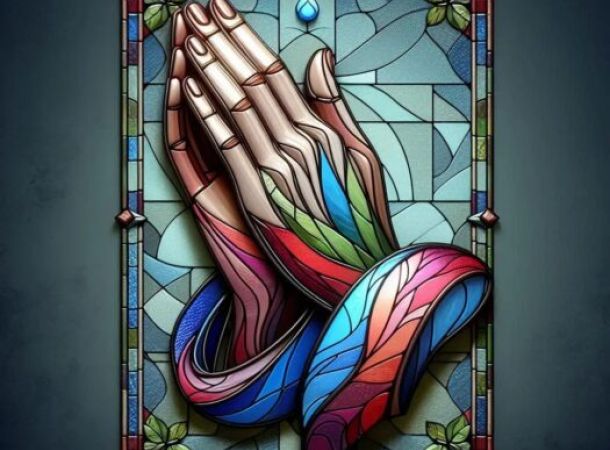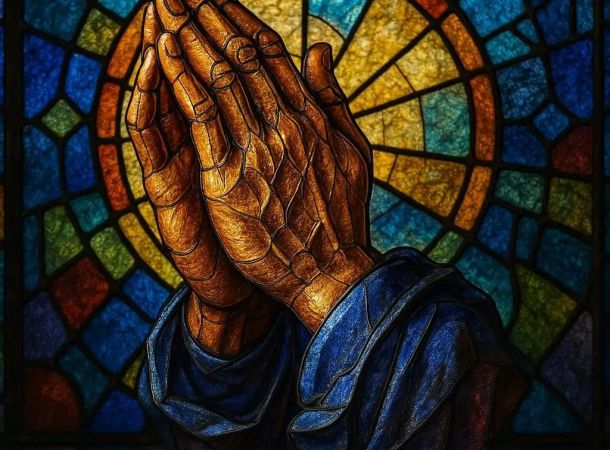Nakedness
The next Torah Portion in review is Tetzaveh, meaning “command,” and is detailed in Exodus 27:20-30:10. This portion describes the commandments about the Priests’ garments. We just learned in the last Torah Portion how the building of the Tabernacle could symbolize God creating a human as a dwelling for the Divine Presence. Now, we will delve into the profound spiritual significance of the clothing or Priestly coverings and how they symbolize spiritual righteousness and cleanliness.
Psalm 132:9: Let Your priests be clothed with righteousness, and let Your saints shout for joy.
Isaiah 61:10: I will greatly rejoice in the Lord, my soul shall be joyful in my God; For He has clothed me with the garments of salvation, He has covered me with the robe of righteousness, as a bridegroom decks himself with ornaments, and as a bride adorns herself with her jewels.
So, what enemy can we bring awareness to in this portion? The opposite of being clothed with divine elements is nakedness. Nakedness is when you have lost your coverings due to disobedience, rebellion, or idolatry. Adam and Chavah were the first nudey-crackers when they disobeyed the instructions of the Holy One in the Garden of Eden. The sages believe that initially, God clothed Adam and Chavah with divine light and that when lost, God covered them with priestly garments. Kotenot is translated as garments in Genesis 3:21 and can refer to animal skins or priestly garments (Neh 7.70). Ultimately, we may return to being clothed with the primordial, glorious light.
Genesis 2:25: And they were both naked, the man and his wife, and were not ashamed.
Genesis 3:1: Now the serpent was more cunning (aram) than any beast of the field which the Lord God had made. And he said to the woman, “Has God indeed said, ‘You shall not eat of every tree of the garden’?”
The Hebrew word for naked in the above verse is arom (ayin, rosh, mem). It comes from the root aram (same Hebrew letters as arom), which means “to make bare or expose, to be subtle, crafty, cunning or prudent.” The serpent, Adam, and Chavah were naked. A while back, someone pointed out that the serpent is an animal that lacks a natural covering. The covering of skin that it does have sheds. Humans have hair, whereas animals have fur, shells, and fins as natural coverings. The Biblical imagery of a serpent could point to a human who has shed their natural covering. In the following verse, a loss of clothing comes from disobedience to God’s instructions.
Deuteronomy 28:48: (If you rebel against my word) Therefore you shall serve your enemies, whom the Lord will send against you, in hunger, in thirst, in nakedness, and in need of everything; and He will put a yoke of iron on your neck until He has destroyed you.
Nakedness is often associated with shame. Ham uncovered his father Noah’s nakedness and incurred a curse. There are a few commentaries on what exactly happened with Noah and Ham. Habakkuk 2:15 says that anyone who gets another drunk to gaze on their nakedness is vulnerable to judgment, and we know there was some overdrinking involved with Noah (Gn 9.20-23). This incident could be what happened, but I wasn’t there, so who knows? We should cover someone in shame, not expose them.
Proberbs 12:16: A fool’s wrath is known at once, but a prudent man covers shame.
Idolatry swaps the glory of the Holy One for the glory of the idol we worship. In the following chapters of Exodus, we will find that when the Israelites created and worshiped the Golden Calf, they took on the glory of a beast, replacing the glory of Elohim. Just as we discovered above, Adam and Chavah took on the nakedness of the serpent in exchange for the divine luminous light of the image of God. Harlotry is idolatry in the Bible because worshiping other gods is like cheating on God.
Ezekiel 23:29: They will deal hatefully with you, take away all you have worked for, and leave you naked and bare. The nakedness of your harlotry shall be uncovered, both your lewdness and your harlotry.
Ezekiel 16:36-37: Thus says the Lord God: “Because your filthiness was poured out and your nakedness uncovered in your harlotry with your lovers, and with all your abominable idols, and because of the blood of your children which you gave to them.
The Greek Scriptures describe priestly garments as the armor of God that protects our mind, heart, gut discernment, and feet from stumbling on the path of righteousness. This understanding of spiritual warfare as internal rather than external invites us to reflect on our own spiritual journey and the battles we face within ourselves.
Ephesians 6:12-17: For our struggle is not [with] flesh and blood, [nevertheless] against the rulers (human), against the powers (internal and external bondage that keeps us from freely worshipping God), against the worldly forces of this darkness (influencers of darkness in this world), and against the spiritual forces of wickedness in the heavenly places (high places of idolatry). Therefore, take up the full armor of God so that you may be able to resist when times are evil, and after you have done everything, stand firm. Stand firm then! Buckle the belt of truth around your waist and put on the breastplate of righteousness. Strap up your feet in readiness with the Good News of Shalom. Above all, take up the shield of faith with which you will be able to extinguish all the flaming arrows of the [wicked]. And take the helmet of salvation and the sword of the Spirit, which is the word of God.
Ex 28:4: And these are the garments which they shall make: a breastplate, an ephod, a robe, a skillfully woven tunic, a turban, and a sash. So they shall make holy garments for Aaron, your brother, and his sons, so that he may minister to Me as priests.
Let’s go back to the beginning; whom did Able wrestle with? Cain, his brother, or literal flesh and blood. How about Noah? Ham, his son, or literal flesh and blood. Again, Abraham wrestled more flesh and blood with his wife and concubine, Sarai and Hagar, and the kings of the nations (rulers). Isaac wrestled with his brother Ishmael. Jacob wrestled with his brother Esau and father-in-law Laban, more flesh and blood. Joseph wrestled with his brothers. What about Yeshua? He wrestled with the Pharisees, Sadducees, and scribes within God’s household. They were spiritual brothers but still flesh and blood. When Ephesians tells us that we do not wrestle with flesh and blood, it could mean that we don’t win the war against evil with our flesh and blood, walking around, punching, kicking, and fighting people. We are not in a spiritual war, celestial fight, or battle in another realm. We are in a spiritual war where our spirits are at war with our flesh, creating a constant internal battle.
Galatians 5:17: For the flesh sets its desire against the Ruach, but the Ruach sets its desire against the flesh—for these are in opposition to one another, so that you cannot do what you want.
When we recognize that other people are also at war internally, we understand that we defeat the internal and external enemies of greed, envy, hatred, selfishness, and so forth with the sword of the Spirit and the Word of the Holy One, just as it says in the text. The Bible says that the stories of the forefathers and foremothers are examples for us, examples of what we will go through, wrestle with, and have to overcome, and it gives us tools to do so (2 Tim 3:16-17 & 1 Cor 10:6-11). We do not have a Bible full of examples of the Israelites fighting celestial beings and unseen enemies. Instead, they consistently struggle with walking face to face with each other and the Holy One. Let’s keep our garments of righteousness, salvation, humility, and light on so that the garments of shame don’t cover us.
Romans 13:12: The night is almost gone, and the day is near, so let us put off the works of darkness and put on the armor of light.
1 Peter 5:5: Likewise, you younger ones, submit yourselves to the elders. And all of you, clothe yourselves with humility toward one another, for “God opposes the proud but gives grace to the humble.”
Revelation 16:15: “Behold, I am coming like a thief! How fortunate is the one who stays alert and keeps his clothes on, lest he walk around naked and they see his shamefulness.”




Leave a Reply